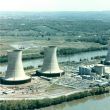Knowing how much to worry
By Shahriman Lockman, May 3, 2012
In developing countries, the dangers of nuclear proliferation and nuclear terrorism can often seem remote. In the developed world, these threats are seen as rather grave. Part of the reason that the two viewpoints are so incompatible is that proliferation risk is very difficult to assess.
Even relatively stable regions, and indeed even countries without nuclear energy programs, can contribute to proliferation. In Malaysia, for example, the threat of proliferation was long assigned a low priority. This began to change in 2004, when it was discovered that a Malaysian company, operating as part of the A.Q. Khan network, had produced centrifuge components for the Libyan regime of Muammar Qaddafi. To prevent this sort of thing from happening again, Malaysia in 2010 passed one of the toughest export-control laws in Asia. It is also planning to ratify the Additional Protocol to its Safeguards Agreement under the Nuclear Non-Proliferation Treaty, as well as to sign the Convention on the Physical Protection of Nuclear Material and its 2005 amendment.
Most developing countries, however, tend to take a piecemeal approach toward threats such as nuclear terrorism. This is particularly apparent in the context of regional groupings like the Association of Southeast Asian Nations (ASEAN), where countries often have to operate at the level of the lowest common denominator. Though ASEAN has established a nuclear-weapon-free zone in its region, nuclear terrorism has not received much prominence in ASEAN's security agenda, despite the fact that a number of Southeast Asian countries are actively contemplating the adoption of nuclear power. This has prompted Filipino political scientist Raymund Jose G. Quilop to suggest that countries from outside Southeast Asia may need to “drive the process” of increasing nuclear security’s significance within ASEAN (for instance, in the context of regional processes like the East Asia Summit).
It is, of course, in developed countries outside the region — countries such as the United States and Australia — that the prospect of nuclear terrorism creates a distinct sense of alarm. The United States in particular has treated nuclear terrorism as a major concern for over three decades. In 1976, in what Micah Zenko of the Council on Foreign Relations describes as the CIA's first comprehensive analysis of international terrorism, the agency assessed that "the prospect of nuclear-armed terrorists can, in fact, no longer be dismissed." The 9/11 attacks dramatically heightened US anxiety over this threat, and President Barack Obama has described nuclear terrorism as "the single most important national security threat that we face" and "a threat that rises above all others in urgency.”
Does the threat of nuclear terrorism warrant such intense fear? I believe not. But nor can it be dismissed too lightly. To be sure, aspiring nuclear terrorists would face major technical and logistical obstacles as they sought the ability to detonate an improvised nuclear device. Yet uncertainty surrounds the security of the world’s stocks of fissile material. As US nuclear physicist Peter D. Zimmerman notes, "it is not possible to reassure the world that there has been no theft of fissile material, or that any [such] attempt will be detected quickly enough to prevent [the material’s] being made into a nuclear device."
In such an environment, developing countries should treat the threat of nuclear proliferation and nuclear terrorism more seriously than they do. This especially applies to those countries considering the adoption of nuclear power. Such countries, if they fail to demonstrate a true commitment to nonproliferation and nuclear security, should not be surprised if the international community expresses doubts about their willingness and ability to minimize nuclear threats.
Thus, I do not agree with P. R. Kumaraswamy that nuclear power can ever be regarded as "just another energy option." At the same time, developed countries should stop describing in alarmist terms the security risks associated with nuclear energy programs. Nothing more surely undermines the case for serious approaches to nonproliferation and nuclear security than exaggeration of threats; moreover, such exaggeration may cause some in the developing world to question the motives of those who give the warnings. For the good of all concerned, assessments of security risks must strive for careful balance.
Topics: Nuclear Energy, Nuclear Weapons
Share: [addthis tool="addthis_inline_share_toolbox"]














